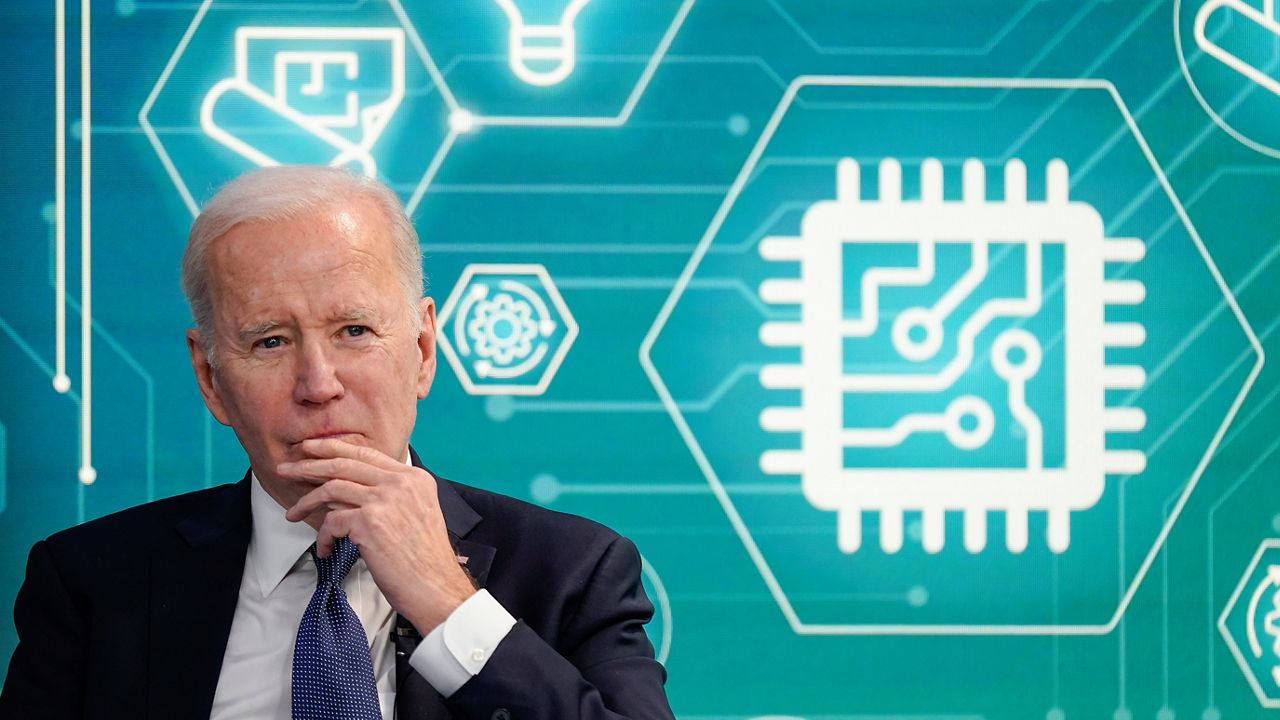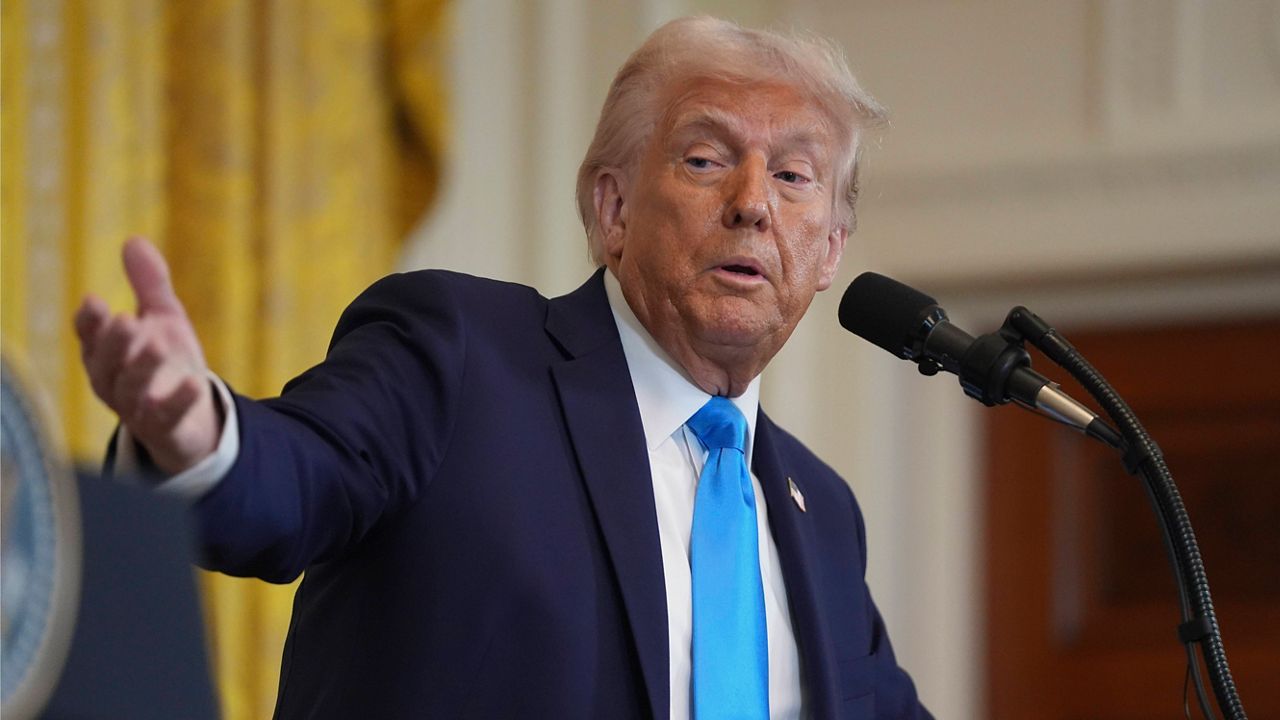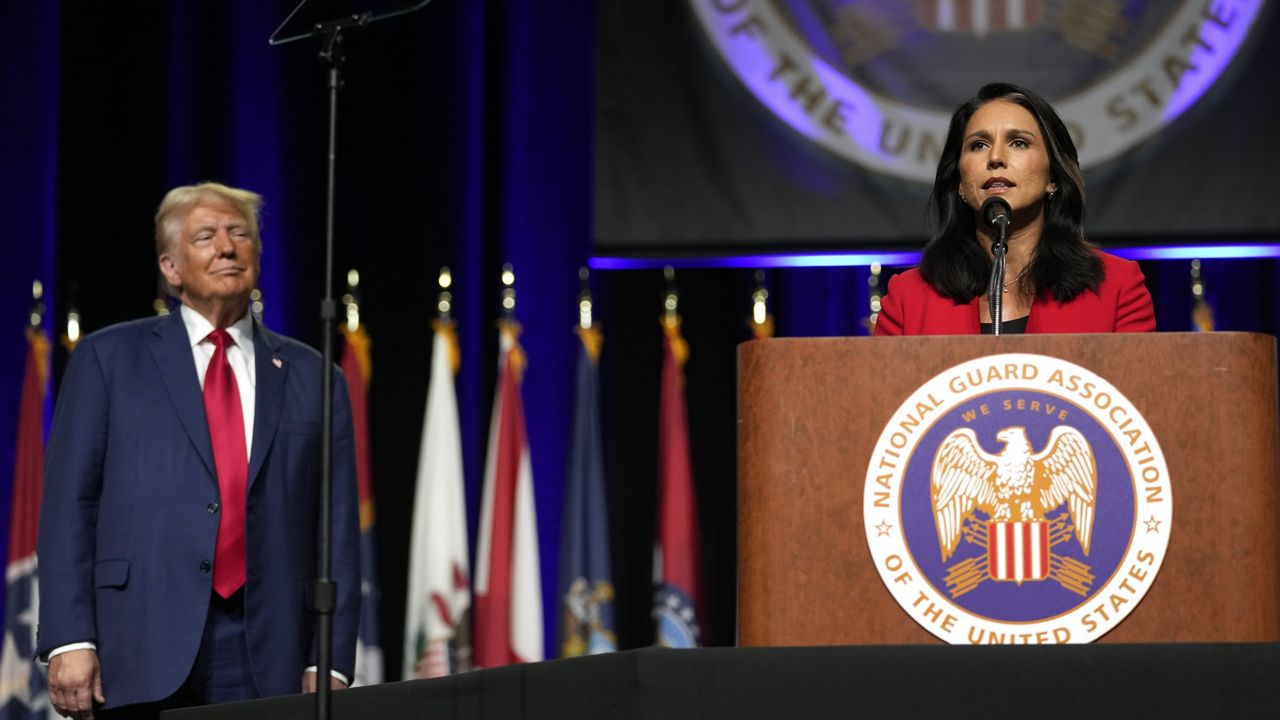The Senate on Wednesday passed a $280 billion bill aimed at boosting domestic semiconductor production and funding science and technology research, a key priority for the Biden administration and major manufacturers.
The House on Thursday approved the measure with bipartisan support, sending it to President Joe Biden's desk.
The final vote in the Senate on Wednesday was 64-33, with seventeen Republicans, including Minority Leader Mitch McConnell, R-Ky., voting in support of the measure along with nearly the entirety of the Democratic caucus. Sen. Bernie Sanders, I-Vt., was the only non-Republican to vote against the measure.
On Thursday, the House approved the measure 243-187 vote, with one Democrat, Rep. Sara Jacobs, D-Calif., voting "present." Jacobs' grandfather founded Qualcomm, which manufactures semiconductors.
House Republican leadership attempted to urge its members to vote against the bill, but the effort was not enough to derail the measure. Two dozen House Republicans – including Reps. John Katko, R-N.Y., Bill Johnson, R-Ohio, Mike Turner, R-Ohio, Liz Cheney, R-Wyo., Bob Gibbs, R-Ohio, Brian Fitzpatrick, R-Penn., David Joyce, R-Ohio, Brian Carey, R-Ohio, Adam Kinzinger, R-Ill., Tony Gonzalez, R-Ohio, and Steve Chabot, R-Ohio – broke with their caucus to support the measure.
House Minority Leader Kevin McCarthy, R-Calif., on Thursday morning lambasted Thursday's GDP report – which showed the U.S. economy shrinking last quarter, its second straight drop – and slammed the measure as a "$280 billion blank check" and "$79B billion in mandatory spending on corporate welfare to be handed out to whomever President Biden wants."
"This morning, the government announced what every American has been feeling for nearly a year, we are in a recession," he said, despite economists being split on whether or not the U.S. is actually in a recession.
"For the record, I'm a no on the Senate CHIPS bill that will come to the floor today," he continued. "I was a no last week, I was a no last night, and I'll be the first no on the board today."
Similarly, progressive Democrats largely supported the measure despite fears that they might follow Sen. Sanders' example. No Democrats broke with their caucus to vote against the bill.
Biden hailed the passage of the bill Thursday, interrupting a meeting with CEOs and his economic team to celebrate it receiving enough votes in the House to pass.
"Today, the House passed a bill that will make cars cheaper, appliances cheaper, and computers cheaper," the president said in a statement. "It will lower the costs of every day goods. And, it will create high-paying manufacturing jobs across the country and strengthen U.S. leadership in the industries of the future at the same time."
"The CHIPS and Science Act is exactly what we need to be doing to grow our economy right now. By making more semiconductors in the United States, this bill will increase domestic manufacturing and lower costs for families," Biden added. "And, it will strengthen our national security by making us less dependent on foreign sources of semiconductors."
This bill includes important guardrails to ensure that companies receiving tax payer dollars invest in America and that union workers are building new manufacturing plants across the country," he continued. "Senate Majority Leader Chuck Schumer, D-N.Y., who has championed the bill in its various iterations for more than a year, said that the measure will be a transformative one for American manufacturing and competitiveness."
"I look forward to signing this bill into law and continuing to grow our economy from the bottom up and middle out for working families all across the country," the president concluded.
"After years of hard work, the Senate is passing the largest investment in science, technology and advanced manufacturing in decades," Schumer said on the Senate floor Wednesday. "This Chips and Science Bill is going to create millions of good paying jobs down the road. It will alleviate supply chains, it will help lower costs and it will protect America's national security interests."
"All too often our government and our businesses are accused of being too short-term," he continued. "But this is one of the most significant long-term thinking bills we passed in a very long time. I told our caucus yesterday that our grandchildren will hold good paying jobs in industries we can't even imagine because of what we are doing right now. And we did it together, both sides cooperating in good faith on some truly difficult issues."
"The American people deserve to see more examples like this, of both sides coming together to do very, very big things that will leave a lasting impact on our country," Schumer added. "And I am confident that future generations will look back on the passage of this bill as a turning point for American leadership in the 21st century"
The measure contains $52.7 billion in subsidies to boost domestic semiconductor production, along with a 25% tax incentive for investments in domestic chip investments worth roughly $24 billion.
It also contains $200 billion for federally backed scientific research, $1.5 billion for the development of “open-architecture, software-based wireless technologies” and $11 billion for the Commerce Department to establish “regional technology hubs” nationwide.
The measure also includes certain “safeguards,” including language which says that federal funds cannot be used for stock buybacks, nor can they be used to “build advanced semiconductor production facilities in countries that present a national security concern,” including China.
The bill’s proponents on both sides of the aisle say that it’s crucial for both national and economic security, as well as essential to ease supply chain disruptions, bolster national security and increase competitiveness with China.
"One-third of the core inflation last year in 2021 — one-third of it — was due to the high price of automobiles," President Joe Biden said Monday at a meeting with CEOs and labor leaders. "You know why that's driven? That's driven by an inability to manufacture more automobiles. Why? The shortage of semiconductors.”
“America invented semiconductors, but over the years, we let the manufacturing of those semiconductors get sent overseas,” Biden added. “And we saw that during the pandemic, when our factories overseas that make these chips shut down, the global economy basically comes to a halt, driving up the costs for families all around the world — but particularly here at home.”
“We source all of our high-end computer chips, mostly from Taiwan, some from South Korea,” Sen. Todd Young, R-Ind., one of the bill’s biggest backers in the Republican caucus, said on CNBC on Tuesday. “And we just can't be that dependent on a country so far away from the continental United States for our missile system chips [and] for the components that go into our radars and our aircraft.”
A number of major companies have announced plans to build semiconductor manufacturing plants in the United States, including, according to the White House:
- Samsung, which is set to invest $17 billion to build a new semiconductor facility in Taylor, Texas;
- Panasonic Energy, which announced plans to invest $4 billion and create 4,000 jobs in a lithium-ion battery factory in De Soto, Kansas;
- Stellantis and Samsung, which announced a $2.5 billion joint venture to manufacture batteries in Kokomo, Indiana;
- Intel’s $20 billion fab outside Columbus, Ohio;
- Texas Instruments investing up to $30 billion in Texas;
- Wolfspeed’s $1 billion expansion in North Carolina
- Expansions by Global Foundries and SK Group
President Biden and South Korean conglomerate SK Group on Tuesday announced a new $22 billion commitment to invest in American technology, including the semiconductor industry.
The SK Group said it would invest $15 billion in the semiconductor industry, including research and development, materials and a new packaging facility. SK Group Chairman Chey Tae-won said the investments would create “tens of thousands” of “highly-paid and highly-skilled” jobs.
“We believe our view [of] the United States as our most important business partner,” he said. “One thing we can work together is building a skillful workforce.”
For some companies, expansion plans are contingent on passage of the bill. Intel delayed the ceremonial groundbreaking on a planned $20 billion facility near Columbus, Ohio, set for last week, citing “uncertainty” regarding the legislation.
Pat Gelsinger, the company’s CEO, told Washington Post Live earlier this month that he has made “super clear” to both Democrats and Republicans in Congress "that if this doesn’t pass, I will change my plans.”
Opponents of the bill on both sides, including Sen. Sanders, have lambasted it as a “blank check” or “corporate welfare” for the semiconductor industry.
In response to Gelsinger’s statement, Sanders said: “I'm not a lawyer, but what the CEO of Intel is saying to Congress sure sounds like extortion to me.”
“To me, what he is saying is, ‘Oh, our industry loves America. Our industry knows how important this is for national defense, how important it is for the healthcare industry, these sophisticated chips," Sanders said. "But despite our great love for the country, and the military, if you don’t give us the [$]76 billion, we’re out of here.’”
"Sounds to me like extortion," he continued. "If I say to you, ‘don’t give me this, you’re in trouble.’ I think the word extortion is not inappropriate.”
Spectrum News' Austin Landis, Lydia Taylor and Ryan Chatelain contributed to this report.








